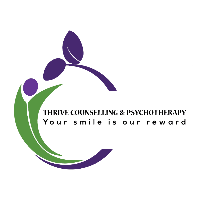Healing Mentally: Navigating the Journey of Recovery from Trauma

Posted on March 23rd 2024
Healing from traumatic experiences is a journey that requires courage, patience, and self-compassion.
Whether you've experienced a single traumatic event or endured prolonged trauma over time, the path to mental healing can feel daunting. However, with the right support and coping strategies, it's possible to reclaim your sense of well-being and resilience.
In this blog post, we'll explore the process of healing mentally from traumatic experiences and offer practical tips for navigating this challenging but transformative journey.
Understanding Trauma:
Trauma can manifest in various forms, including physical, emotional, or psychological harm caused by distressing events such as accidents, natural disasters, abuse, violence, or loss. The impact of trauma can be profound, affecting one's thoughts, emotions, behaviors, and relationships. It can leave individuals feeling overwhelmed, fearful, disconnected, and unable to trust themselves or others.
Acknowledging Your Experience:
The first step in healing from trauma is acknowledging and validating your experience. It's essential to recognize that what you've been through was real and had a significant impact on your life. Give yourself permission to feel whatever emotions arise, whether it's anger, sadness, fear, or numbness. Allow yourself to grieve for what was lost and honor your resilience for surviving.
Seeking Professional Help:
Healing from trauma often requires professional support. Consider reaching out to a Therapist or Counsellor who specialises in trauma therapy. They can provide a safe and supportive space for you to explore your feelings, process your experiences, and learn coping strategies to manage symptoms such as anxiety, depression, or post-traumatic stress disorder (PTSD). Evidence-based treatments such as cognitive-behavioral therapy (CBT), Eye Movement Desensitization and Reprocessing (EMDR), or mindfulness-based interventions can be particularly effective in addressing trauma-related symptoms.
Engaging in Self-Care:
Self-care is an essential component of healing from trauma. Prioritise activities that nourish your mind, body, and spirit. This may include practicing relaxation techniques such as deep breathing, meditation, or yoga to calm your nervous system. Engage in regular exercise to release pent-up tension and promote endorphin release. Make time for activities that bring you joy and fulfillment, whether it's spending time in nature, pursuing hobbies, or connecting with loved ones.
Building Support Networks:
Surround yourself with supportive and understanding individuals who can offer empathy, validation, and encouragement. This may include friends, family members, support groups, or online communities of fellow survivors. Sharing your story with others who have had similar experiences can be incredibly validating and empowering. Don't hesitate to lean on your support network when you need a listening ear or a shoulder to lean on.
Practicing Mindfulness and Self-Compassion:
Mindfulness and self-compassion are powerful tools for healing from trauma. Practice being present in the moment and observing your thoughts and feelings without judgment. Cultivate self-compassion by treating yourself with kindness, understanding, and acceptance. Remind yourself that you're doing the best you can with the resources you have, and that healing is a gradual process that takes time.
Honouring Your Progress:
Finally, honour and celebrate your progress along the journey of healing. Recognise the courage and resilience it takes to confront your trauma and work towards recovery. Celebrate small victories and milestones, no matter how insignificant they may seem. Healing from trauma is not a linear process, and setbacks are normal. Be patient with yourself and trust that you're moving forward, one step at a time.
Conclusion:
Healing mentally from traumatic experiences is a challenging but transformative journey that requires self-compassion, patience, and support. By acknowledging your experience, seeking professional help, engaging in self-care, building support networks, practicing mindfulness and self-compassion, and honouring your progress, you can reclaim your sense of well-being and resilience.
Remember that healing is possible, and you're not alone on this journey. With time, effort, and support, you can emerge stronger, wiser, and more empowered than ever before.
Get in Touch
Connect With Thrive Therapists
Reach out to Thrive Therapists for personalised support, guidance, and expert therapeutic services. Fill out the form below to begin your journey towards enhanced well-being and a healthier mindset.
